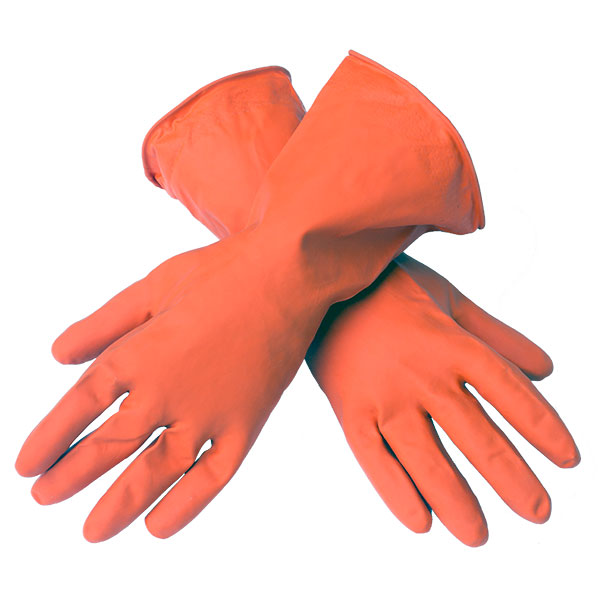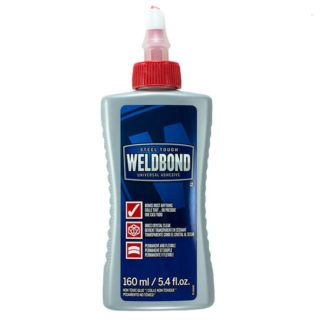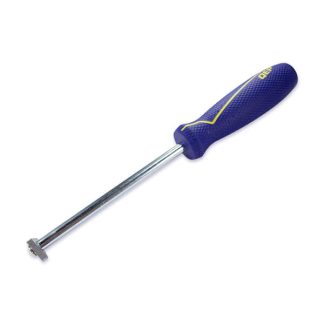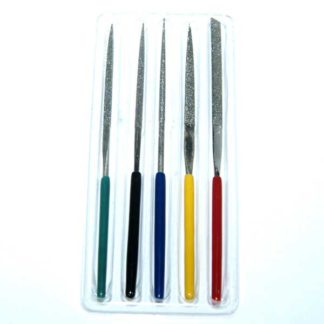Description
Grouting Gloves are heavy-duty latex, and they are puncture resistant and tear resistant (compared to other rubber gloves such as dish-washing gloves). Note that these are not work gloves that should be worn for cutting tile. For cutting and smoothing tile, we wear leather work gloves or vinyl work gloves.
When To Use This Tool
The latex grouting gloves are worn during grouting to protect the skin from abrasive sand and grout, which is mildly caustic. We often use our gloved hands to press the grout between the tiles, but we are careful to rub parallel to the surface of the mosaic and keep our fingertips from pressing between the tiles where the sharp edges are. We also avoid rubbing against the outer edge of the mosaic, which sometimes has sharp edges. Grouting is easier if your outer edges have been smoothed with a marble file and you use a uniform small grout gap of about 1/16 inch or smaller. Wider grout gaps can allow fingertips to press between the tiles.
Product Specifications
- heavy duty latex
- 1 pair
- fits large hands, not made for dexterity or detailed work
Grouting Tips
Grouting outdoors is best, especially some place you can run a water hose and don’t mind a little sand and residue being rinsed. Excess grout can kill grass or plants, so scoop up what you can and wash away what is left.
Grout and concrete harden by BINDING water not by drying out. If you let grout or concrete dry out while it is curing, then it will be soft and crumbly. This also happens if you did not add enough water to the grout when you mixed it up. Cover your mosaic with plastic if you are grouting in strong heat, sunlight, air conditioning, wind, or any other condition that accelerates drying.
Make sure you rinse all the water out of your sponge so that it is moist but not leaving drips of water when you rub it on the mosaic. You do not want to get drips of water in the grout in the gaps when you are rubbing the residue off the faces of the tile.
Do not pour left over grout or grout sludge down plumbing or drains. Grout is concrete and can harden under water. Even sand can clog drains. Instead, pour your grout and grout water into an old plastic container. After it hardens, you can pour off the water and dispose what is left as solid waste.
We use traditional grouts and NOT the new epoxy-grouts, and all our advice is written for traditional grout. If you use the new epoxy-base products, then make sure you read manufacturer recommendations for safety and disposal.
Safety
Always wear safety glasses with side shields when mixing and applying grout. Grouting is a physical process with lots of mixing and rubbing and wiping, and these motions cause pieces of sand and grit to fly unexpectedly.
Grout is mildly caustic and can irritate skin, sometimes severely if you have sensitive skin. The sand and rubbing required in grouting aggravate the problem. Wear rubber gloves while grouting to protect your skin.
Grout contains powdered silica (sand) and is slightly caustic due to the lime it contains. Avoid breathing the dust. Use a dust mask when mixing or use a misting water bottle to avoid creating dust.
How To Make Mosaics
For more advice on designing your mosaic project or mounting, cutting, and grouting tile, please see our page of Mosaic Frequently Asked Questions or our Mosaic Information Guide, which lists instructional pages described by topic. We also post new articles about making mosaics at our How to Mosaic Blog.



